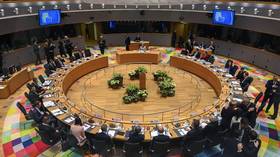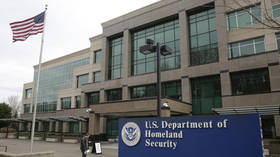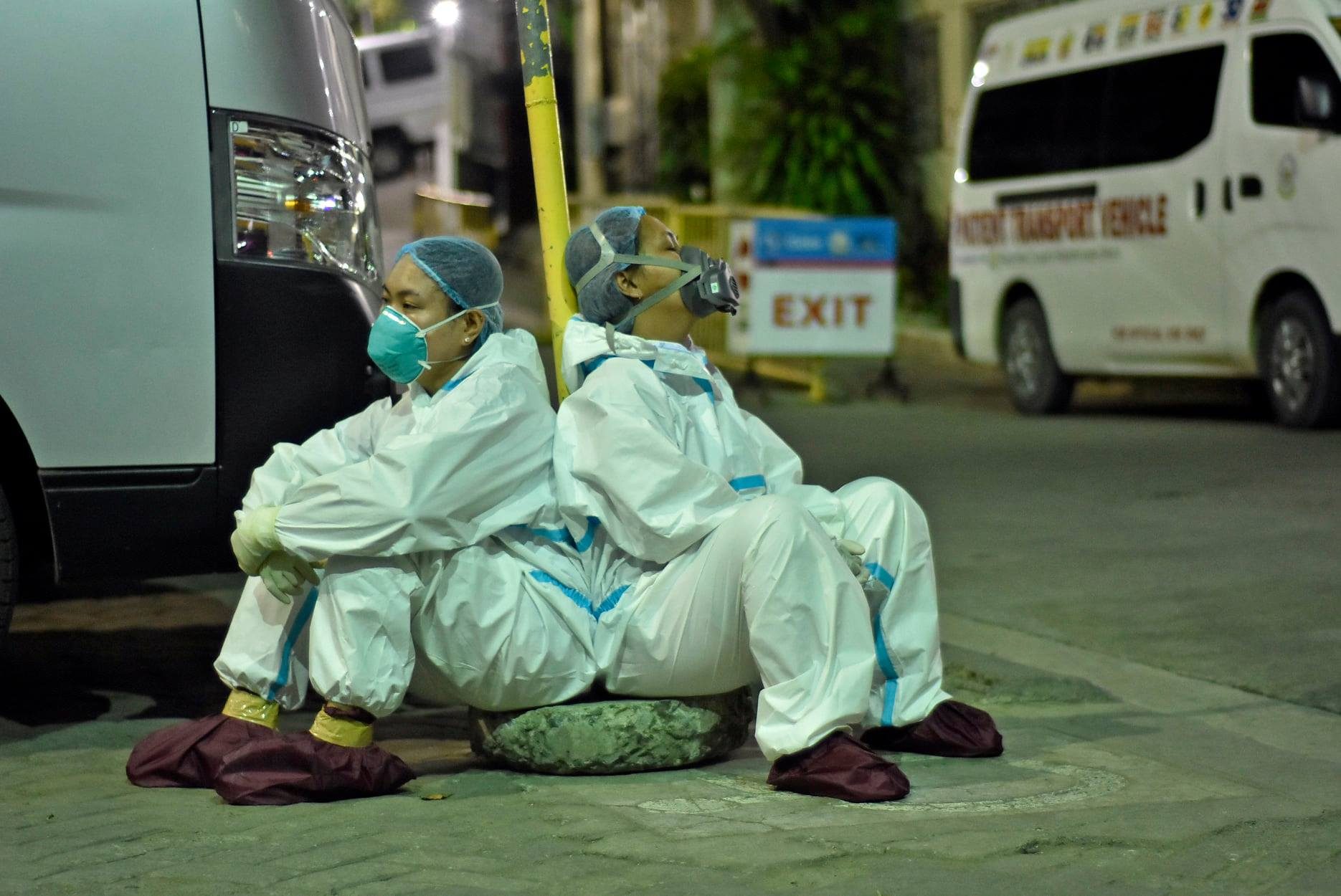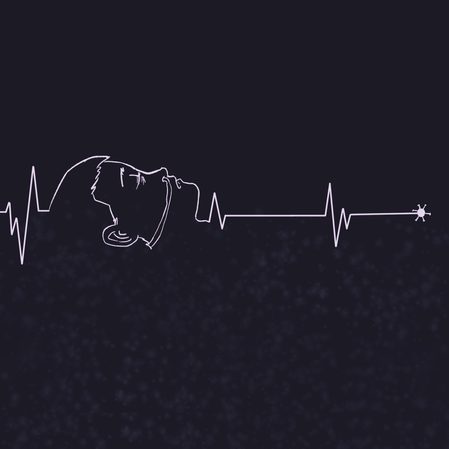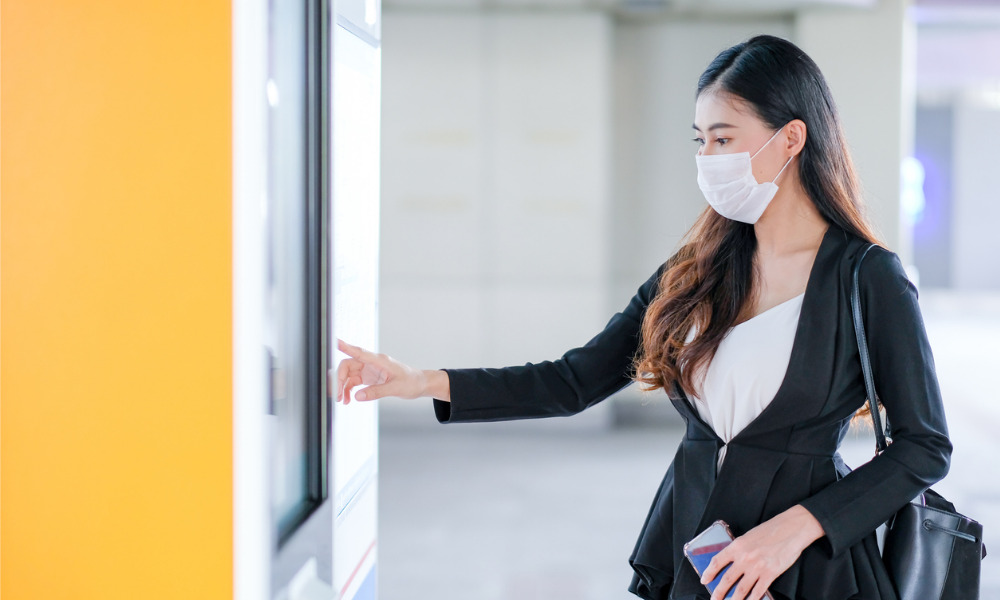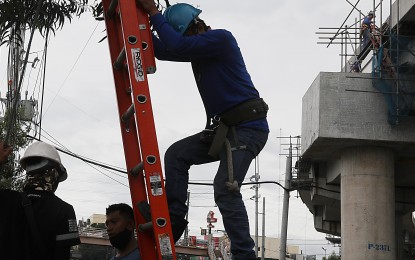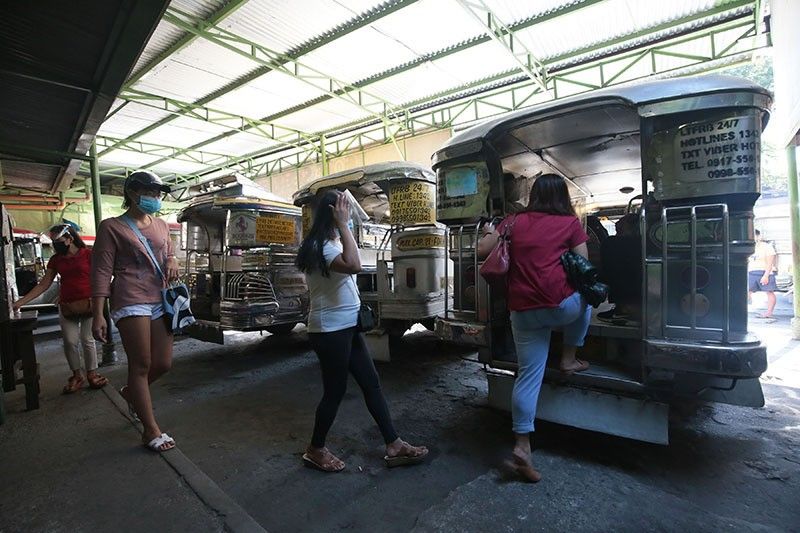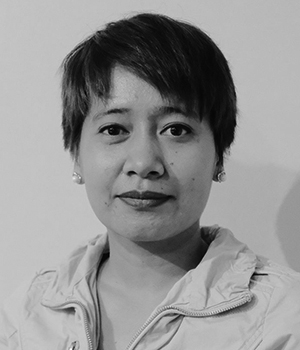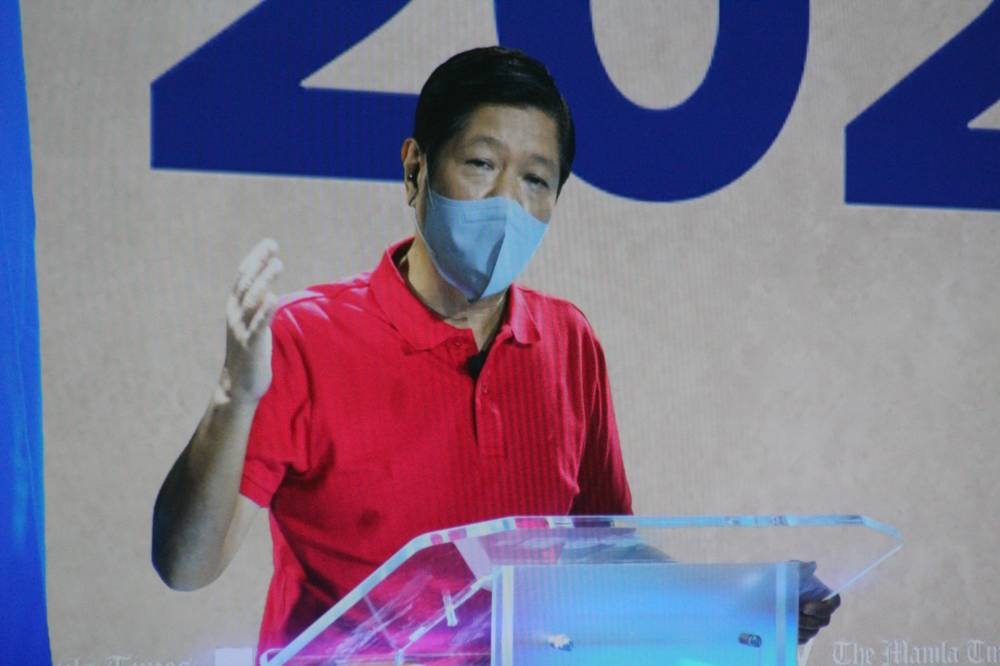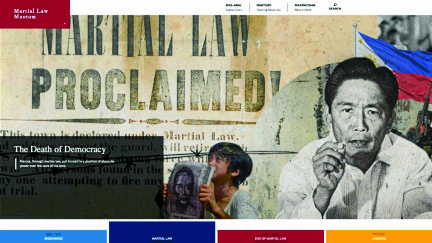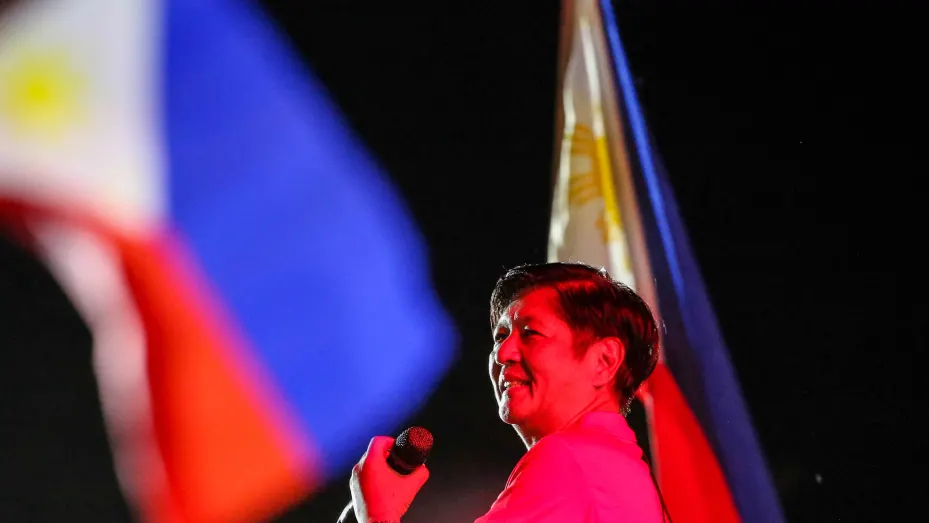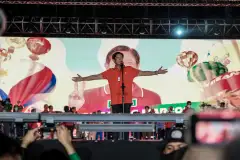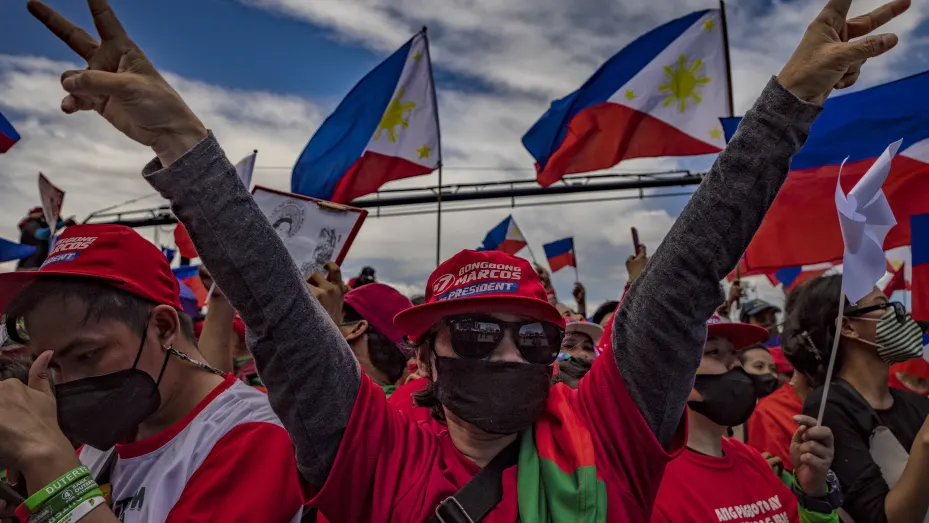MANILA, Philippines (Updated 1:58 p.m.) —
Transportation Secretary Arthur Tugade has ordered a "no vaccination, no
ride" policy on public transportation throughout Metro Manila, which
transport groups say violates Filipinos' right to mobility and skirts
responsibility for vaccination.
This comes after Metro Manila's mayors unanimously agreed to restrict
the mobility of unvaccinated people in the capital region. A number of
local governments have already passed ordinances banning the unvaccinated from entering malls and establishments in their localities.
The Department of Transportation said the policy's
implementation will be "initially in the National Capital Region" while
Alert Level 3 or higher remains in effect pending the decision of the
coronavirus task force.
Tugade said the DO takes effect immediately after publication in the
Official Gazette or in a newspaper of general circulation, and the
submission of a copy with the Office of the National Administrative
Register, U.P. Law Center.
“All concerned attached agencies and sectoral offices of DOTr are
directed to ensure that operators of public transportation shall allow
access or issue tickets only to ‘fully vaccinated persons’ as evidenced
by a physical or digital copy of an LGU (local government unit)-issued
vaccine card, or any IATF-prescribed document, with a valid
government-issued ID with picture and address,” the DOTr department
order read.
'Cumbersome for transport workers, commuters'
According to the DO, a person is considered fully vaccinated against
COVID-19 two weeks after receiving their second dose in a two-dose
vaccination series, such as with the Pfizer or Moderna brand of
vaccines, or two weeks after a single-dose vaccine such as with Johnson
& Johnson’s Janssen vaccine.
Sought for comment, The Passenger Forum convenor Primo Morillo told Philstar.com in
a phone call that while the commuter advocacy group is pro-vaccine,
vaccine access remains the main issue that the department order fails to
address.
"We know we aren't efficient with our vaccine rollout, [so]
it’s hard to do given the vaccines aren’t readily available. How are you
going to do that in a jeep where they don’t have doctors and they’re
not terminal-to-terminal? People will be rushing, will you be checking
them one by one?" he said in mixed Filipino and English.
"For the longest time, they couldn’t even implement social distancing
for practical reasons...This will only make it difficult for commuters
as well as drivers and conductors even though in reality, they do not
have a quick and effective way to identify who is fully vaccinated and
who is not."
As of this writing, only 67.8 percent of Metro Manila residents are fully vaccinated.
"How does the DOTr think of this? It will cause more problems, and it
doesn’t address the root reason why many are not getting vaccinated,
which is access. By this time, they should be able to map who is getting
vaccinated and who is not...Before the government can think of these
things, we should be ensuring vaccines are available first. Why aren’t
they going house to house to vaccinate for example?"
In a text message, Pagkakaisa ng Manggagawa sa Transportasyon convenor Dante Lagman told Philstar.com that
the policy's implementation "would be too cumbersome for public
transport workers who actually to don’t have access to vaccinated
persons database."
"It has no legal basis to stand on and, in fact, violates existing
laws...After two years, we should already be able to 'live with COVID',
if only the health system was strengthened enough to accommodate
patients and home care introduced extensively," he said.
"If unvaccinated workers are not allowed on public transport to get
to work then it is tantamount to being a requirement for work."
The COVID-19 Vaccination Program Act of 2021 or Republic Act No.
11525 provides that vaccine cards shall not be considered as an
additional mandatory requirement for educational and employment
purposes.
The pandemic task force has, however, made it policy to require
vaccination for on-site work in certain industries and for unvaccinated
workers to take regular RT-PCR tests at their own expense.
‘Violation of the right to mobility'
In a statement, Partido Lakas ng Masa presidential aspirant and labor
leader Leody de Guzman called the policy an "explicit coercion of the
masses," saying that the resurgence in coronavirus cases came after the
national government "eased all restrictions to increase the consumption
of the people at Christmas as a solution to revive businesses and
profits."
De Guzman called on the Duterte administration to accelerate and
expand the vaccination drive by providing incentives for hesitant
Filipinos to get vaccinated.
"One solution is to provide paid leaves by the private and public
sectors to their workers. House-to-house vaccinations may also be
considered, as some LGUs have done in the distribution of aid," he said
in Filipino.
"It is infuriating that for two years now, the Duterte regime has not responded to these calls properly," he said.
PLM vice presidential bet Walden Bello slammed the policy as being
too tight, saying it is better to just provide financial incentives for
those who complete the COVID-19 vaccine than to be strict.
"Yes, [vaccine] certificates should be checked, but segregation, not
repression is the answer, as in the case of restaurants. Unvaccinated
people should be able to ride buses and public transportation
specifically designated for them, just as in restaurants," he told
reporters in a Viber message.
"There is already a negative incentive here, since [unvaccinated]
people have to wait longer for special buses, but it is not draconian
and repressive."
Under the Order, the department said that violations of the policy
are considered violations of applicable general safety and health
provisions under any concession or service agreements, authority or
permits to operate of public transportation, and other similar
instruments.
"That’s what’s confusing about it because that means Tugade is worse
than the former generals in the IATF. Before they said they’d just tell
[violators] to go home. This time there’s an actual violation," Morillo
said.
"Not allowing them in malls, that’s not essential. But commuting?
That’s so essential. If it’s debatable with going to malls, this time,
there’s really a violation of the right to mobility."
The Department Order also exempts just two groups from the policy, namely:
- Persons with medical conditions that prevent their full COVID-19
vaccination as shown by a duly-signed medical certificate with the name
and contact details of their doctor.
- Persons who will buy essential goods and services, such as but not
limited to food, water, medicine, medical devices, public utilities,
energy, work, and medical and dental necessities, as shown by a duly
issued barangay health pass or other proof to justify the travel.
"We are exempted as consumers, but we are not exempted as workers.
That just means you can buy, you can go out if you want to spend, but
not if you want to work and earn. Both of those are important to the
economy and to the lives of people," Morillo said.
"While the right to travel may be infringed under circumstances such
as those existing now, to us, it is simply diverting blame away from the
government who has failed to take us to the new normal," Lagman added.
DoTr: No discrimination
At a press briefing later Wednesday, Transportation Undersecretary
Artemio Tuazon Jr., who represents the DOTr before the IATF, said that
he expected the policy to be fully effective by next Monday to give
passengers time to prepare. He added, however, that it was "continually
being implemented today."
"I don’t think there will be discrimination...we are not limiting
their right to transportation, but they will not be able to use public
transportation. They have other means of transportation," he said when
asked about the criticisms over the policy.
Asked how the DOTr can operationalize the policy, Tuazon said that
the burden of the policy is on drivers and operators who will have to
check if each passenger is able to present a vaccination card before
allowing them to board.
According to Tuazon, enforcers will "work together" to implement the
policy in road transportation while the PNP and its Highway Patrol Group
has already been asked to help.
He said that the department was looking at "points of checking" but clarified that these are "not necessarily checkpoints."
Responding to critics, Transportation spokesperson Goddess Libiran
said: “It is more anti-poor and anti-life if our countrymen are infected
and infect others because they are not vaccinated.”
"Worse, if they infect our public transport personnel, it will be
more dangerous and more people will be affected. We want to prevent a
repeat of the public transport shutdown...We are doing everything we can
to maintain and keep our public transport operations safe and
running," she told reporters in a Viber message.
According to data from the Japan International Cooperation Agency,
though, around 71% of households in Metro Manila do not own private
vehicles and have to rely on public transportation.
"They seem to have forgotten that the reason people take public
transport is because they have no choice, they do not have their own
vehicles," Morillo said in Filipino.
"It is true that others already use a bicycle but first, not everyone
has the ability to buy or even use it. Besides not all areas have been
reached by bike lanes. It is obvious that our transport officials do not
experience the difficulty of commuting and other problems of the simple
passenger." — with a report from James Relativo
